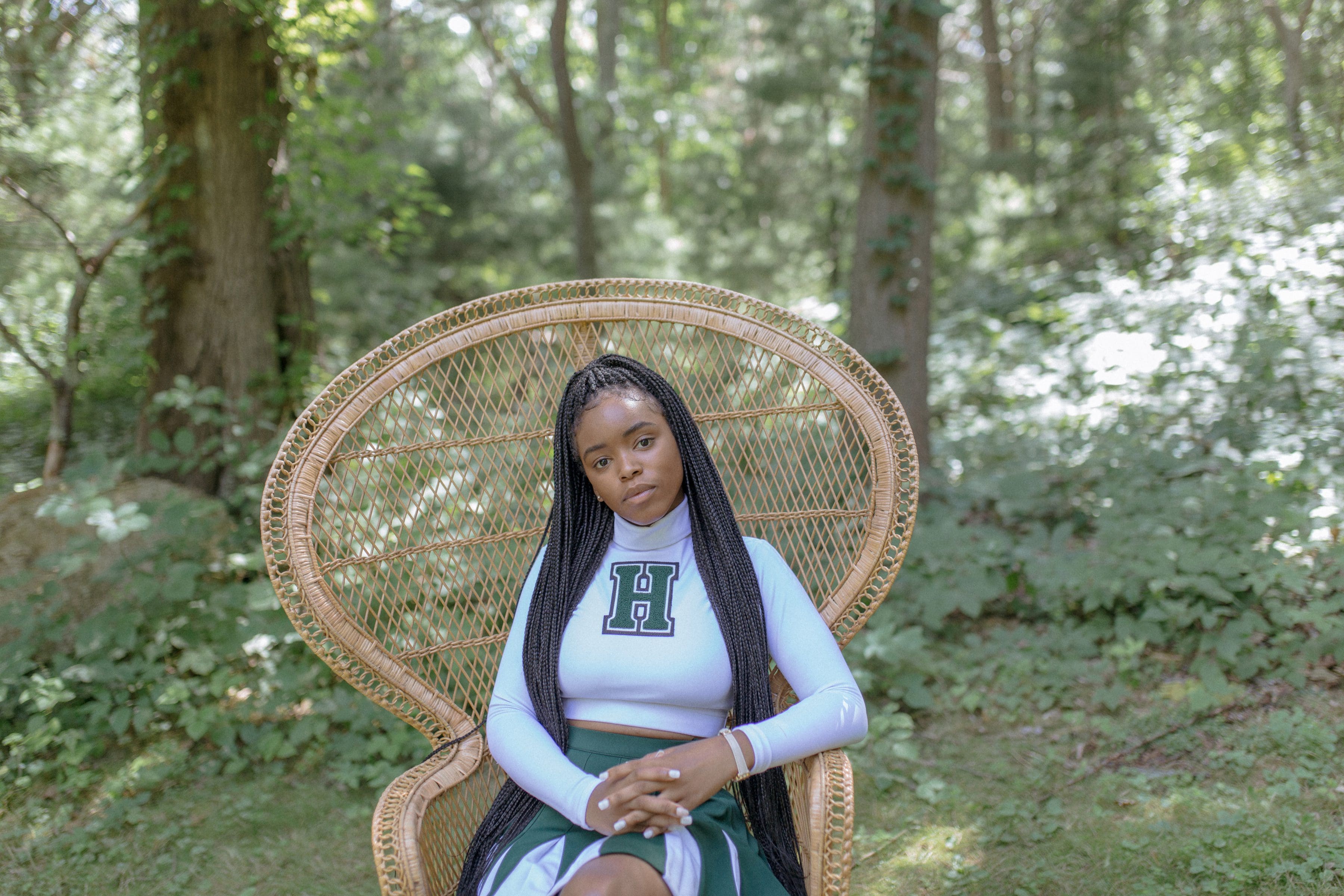
If the CW’s Riverdale were good, it might look a little something like writer-director Tayarisha Poe’s début film, Selah and the Spades. Set in a slightly off-kilter version of an elite boarding school, Poe uses playing card-themed drawings to introduce the leaders of the factions within Haldwell School, including Selah (Lovie Simone), head of the Spades, which controls the school’s drug and alcohol trade. Selah is clearly the unofficial leader of the group, but as her chief rival, Bobby (Ana Mulvoy Ten) points out, Selah is a senior without a clear successor. Enter Paloma (Celeste O’Connor), a shy sophomore who seems inexplicably drawn to Selah—and vice versa.
Right off the bat, from the narration, to the staging, to even the stylized costumes, Poe immerses the viewer in this world. Perhaps the most important element, though, is Kate Abernathy’s editing. Each cut is an abrupt jump to the next scene and especially at first, the storytelling doesn’t always flow in an obvious way. Poe could easily let the pace slow by allowing Paloma to become our entry point into this world, but her script is thrillingly uninterested with approaching clichés in expected ways. Rather than allow us to latch onto the familiar newcomer in a new world narrative, by keeping the audience off balance, she forces the audience to see Selah–and Simone’s performance of her–as the film’s focal point.
Take the scene where we discover Selah is a cheerleader. Years of teen movies make us expect a scene where Selah’s power is emphasized, perhaps venturing into bitchy boss type as she berates the other girls. Instead, Selah turns to the camera and delivers a speech on cheerleading as an ultimate expression of female empowerment. “They always try to bring you down when you’re 17,” she tells us, but she and the squad also decide, “how short our skirts will be,” and, “how spread out we make our eagles,” and suddenly, a trope that’s so often used to divide women in film becomes a sign of unexpected solidarity.
That said, striking and effective as that scene is, it’s also likely that its self-aware tone won’t work for every viewer. Throughout, Poe doesn’t so much go for realism as a heightened, almost theatrical feel and while Paloma is probably the only character even resembling a real teenager, that tone also allows the film to heighten the characters’ emotions. Teenagers feel everything in the extreme and Poe and her actors brilliantly express that. We know from early phone calls that Selah’s mother is strict and possibly even cruel, but their one scene together at once feels like the most dramatic mother-daughter encounter possible and undeniably true.
Maybelle Summers (cast to perfection with the formidable Gina Torres) is cold when she first summons her daughter home to talk about college and it’s surprising to see Selah tentative for the first time. That said, it soon becomes clear that Selah’s obsession with power and perfection is a manifestation of her desperation to live up to her mother’s expectations. Torres and Simone are both brilliant in the scene, walking a delicate line between drama and camp and while the scene may tip over into the latter as Maybelle recites the somewhat overused story of the scorpion and the frog, it does also help the audience better understand Selah’s motivations and hardness.
Knowing that, it would seem easy to predict where the story might go, but it’s surprising how well Poe’s script melds well-trod tropes from gangster pictures and teen drama tropes without allowing the results to feel overwrought. When Selah discovers someone in her organization has betrayed her, her first reaction is anger, but it’s Simone’s deadly calm in the scenes that follow as she sends the culprit on alone on a dangerous errand that are far more chilling. Like Michael Corleone before her, Selah’s journey is a question of how far she’s willing to go to take and maintain power and the film dives into that darkness without hesitation.
Still, while Selah and the Spades has the trappings of a larger examination of power and morality, its ending is so ambiguous that it’s ultimately a little unclear what Poe is trying to say. Perhaps her stylish, theatrical take on high school drama is nothing more than a character study of a troubled young woman understanding what it means to own and wield her power. And while that subject will perhaps seem slight to some viewers, it’s impossible not to find some enjoyment in watching a filmmaker with a strong point of view make something so singular and stark. So much of the content we’re watching when we’re trapped in our homes is about finding ways to fill the time. What a thrill to find something that makes that time feel full and worthwhile.

